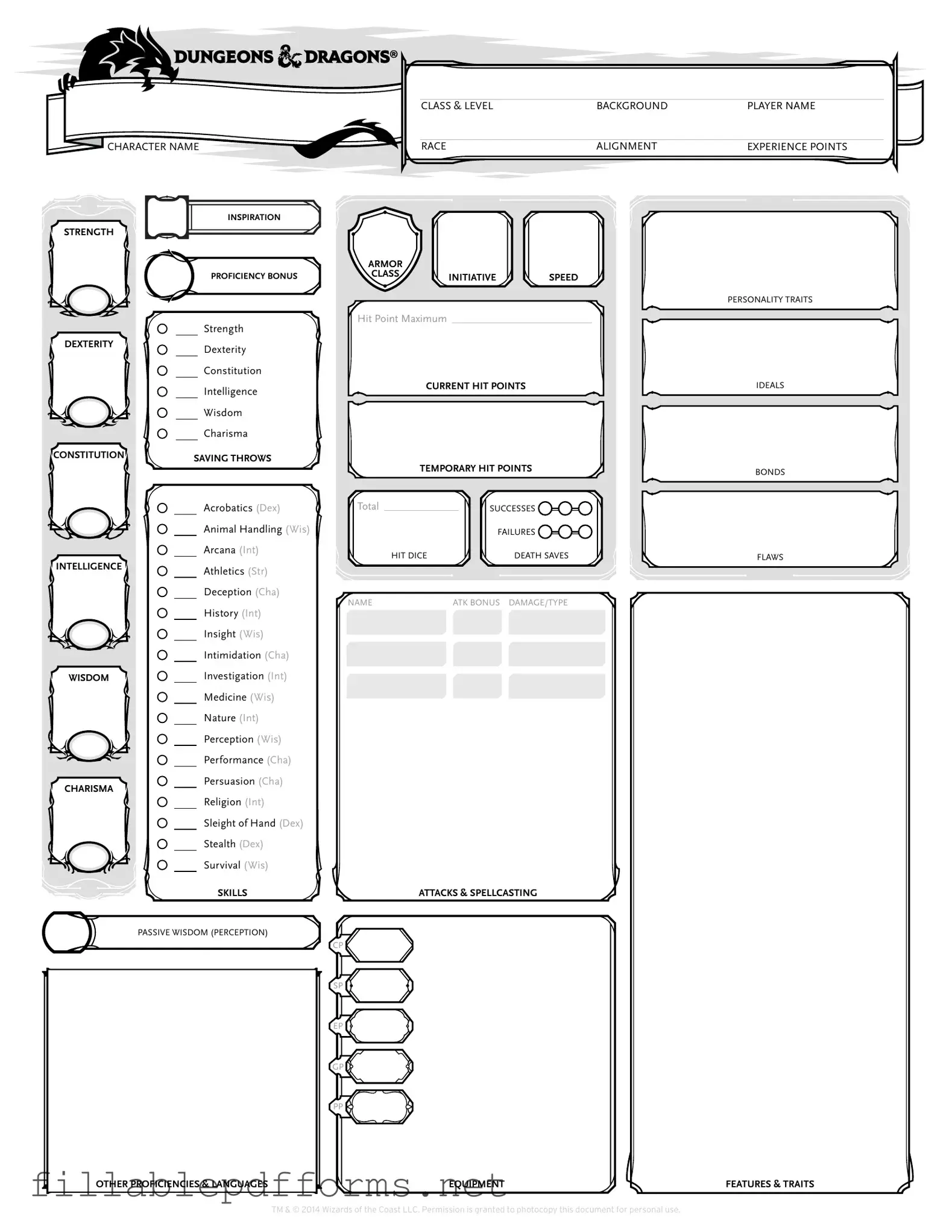Dnd Character Sheet PDF Template
The Dungeons & Dragons (D&D) Character Sheet is a vital tool for players, serving as a comprehensive record of a character’s abilities, skills, and background. This form not only helps players track their character’s progress but also enhances the overall gaming experience. Understanding how to effectively use the character sheet can lead to more engaging and enjoyable gameplay.
Launch Editor Here

Dnd Character Sheet PDF Template
Launch Editor Here

Launch Editor Here
or
▼ Dnd Character Sheet PDF
Almost there — finish the form
Complete Dnd Character Sheet online fast — no printing, no scanning.